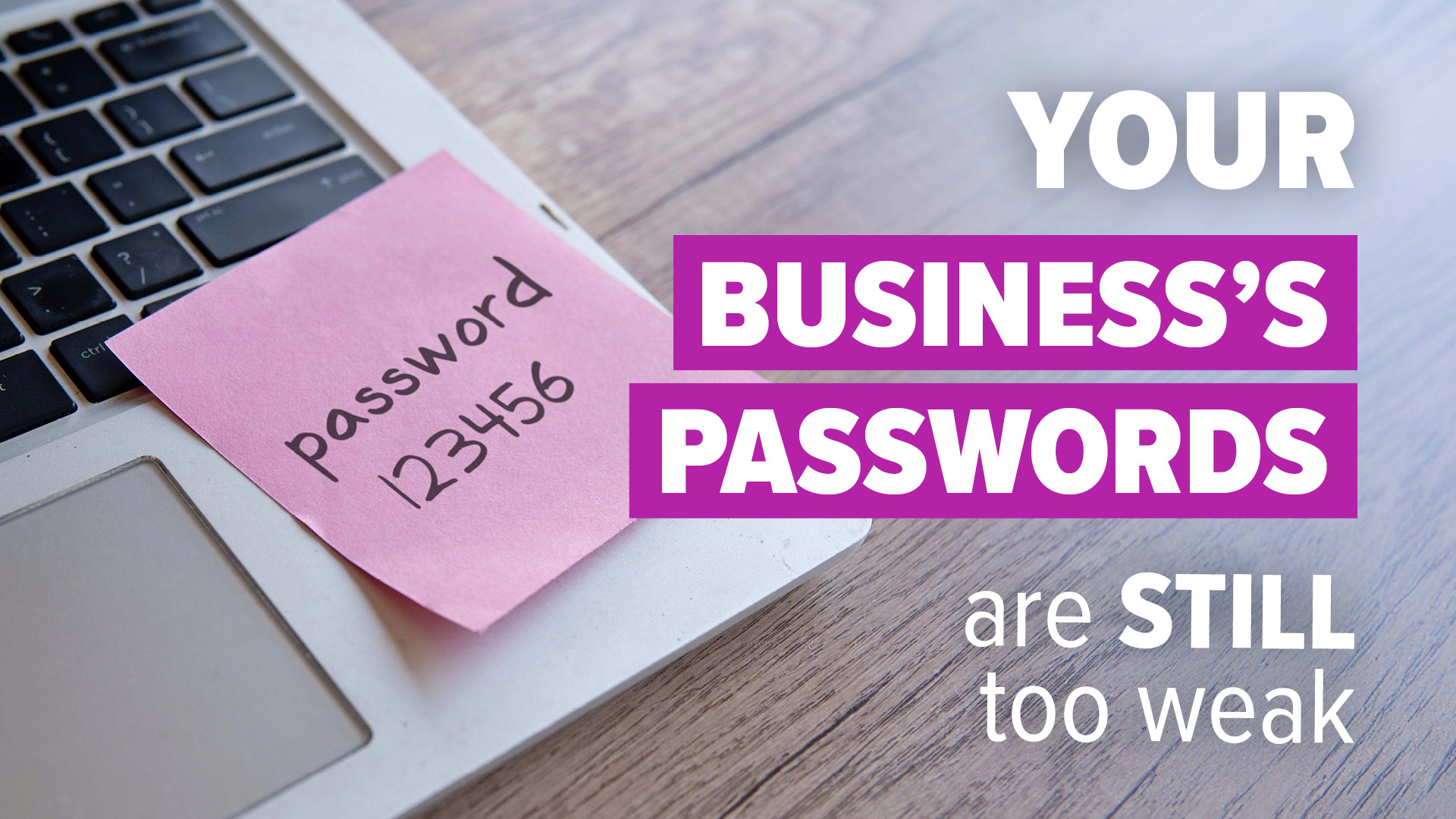Still using “123456” as your password? It’s time for a reality check.
Let’s be honest—have you (or someone on your team) still got at least one password like “12345”, “password123”, or even “qwerty123”?
You’re not alone. But it’s not okay anymore.
Despite constant warnings from IT professionals like us here at Deycom, weak passwords are still a massive problem. And they’re one of the easiest ways cyber criminals get into business systems.
You’d be surprised how many companies—large and small—still rely on passwords that can be cracked in less than a second.
In fact, recent research shows the most common password is still… you guessed it: “123456”.
Just behind it?
“123456789”,
“password”,
and yes, even “qwerty123”.
These aren’t just lazy choices—they’re open doors for hackers.
And it’s not just the big companies making these mistakes. Small and medium-sized businesses like yours are often targeted more, simply because attackers know the defences might not be as strong.
One weak password is all it takes for someone to access your email, shared files, accounts software—or worse, your client data.
The impact?
It can be financially damaging and seriously harm your reputation.
And don’t think, “We’re too small to be a target.”
Cyber criminals aren’t picky—they go after the easiest wins. Weak passwords are like leaving the key in the door.
Even if you’re not using something obvious like “password”, you could still be at risk.
Many people are using their own names, birthdays, or even sweet phrases like “iloveyou” (romantic, but risky).
So what should you do?
At Deycom, here’s what we recommend to every client:
✅ Use strong, unique passwords for every login. Ideally ones that are long, random, and include a mix of characters.
✅ Don’t rely on memory (or Post-it notes). Use a password manager—there are great options out there that securely store and generate passwords.
✅ Enable two-factor authentication wherever possible. That means you’ll need a one-time code (often via your phone) even if someone guesses the password.
✅ Consider moving to passkeys. These use fingerprint or face recognition instead of passwords. It’s simpler, faster, and much more secure. We expect this to become the new standard soon.
Passwords might not seem like a big deal… until they are.
If your team is still using outdated or insecure passwords, let’s fix that before it becomes a real problem.
At Deycom, we work with businesses like yours every day to tighten security without making life harder for your team.
Need a hand reviewing your password policy or rolling out better login security? Get in touch. We’re here to help.

